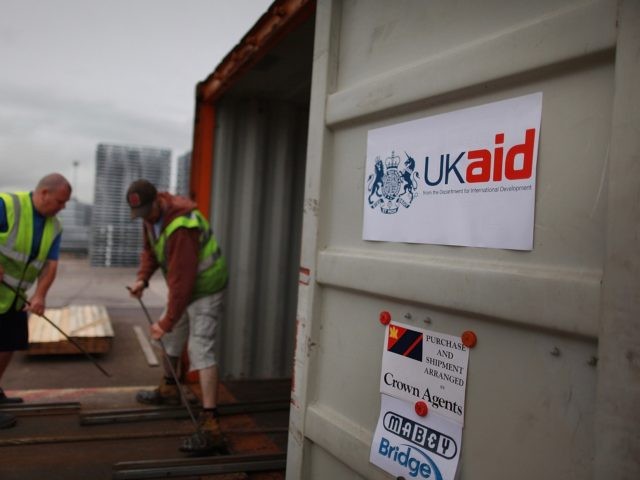Prime Minister Boris Johnson is currently considering a short-term cut to foreign aid spending amidst huge budgetary shortfalls due to the economic damage caused by the Chinese coronavirus and the ensuing lockdown restrictions.
The government is drafting plans to decrease the amount spent on foreign aid from 0.7 per cent of Britains gross national income to 0.5 per cent.
In 2019, the British taxpayer sent £15 billion in aid to foreign countries. While the figure is expected to be smaller in 2021 due to economic contraction during the pandemic, the proposed cuts are believed to save around £5 billion, according to The Times.
The government is expected to inform Parliament that the loss in revenue from shuttered businesses during the coronavirus lockdowns has already cost the government over £210 billion and therefore meeting the foreign aid target is unfeasible.
Chancellor of the Exchequer Rishi Sunak is said to be a driving force behind the proposed cuts to foreign aid, arguing that shipping out billions of pounds sterling to foreign countries while the British public faces spending cuts is politically disastrous.
Prime Minister Boris Johnson, on the other hand, is reportedly demanding that the cuts be temporary and calling for a return to 0.7 per cent spending by as early as 2022.
The British government is required by the International Development Act Britain to spend the 0.7 per cent on foreign aid, however, the legislation does provide a cut out that allows for a cut in spending if there is a “substantial change” to the national income of the country because of “circumstances outside the UK”.
It is unclear if the proposed cuts would pass through Parliament, however, with a government source saying that the government’s use of the “loophole” will almost certainly face a judicial review.
“Foreign aid spending is more important now than ever, especially when we’re trying to project ourselves on the world stage. If we tried to get it through parliament by changing the law we would certainly be defeated,” the source added.
Asked about the possibility of cutting foreign aid, a government spokesman said: “We’ve talked about needing to make sure we get value for money for the UK taxpayer and that aid is spent efficiently.”
The actual effectiveness of the UK’s foreign aid programme has long been in question.
A 2018 review from the Independent Commission for Aid Impact (Icai) found that the government had overestimated the number of women’s lives that foreign aid had saved, saying the real figures “were significantly below what they could have been, given the level of investment”.
The overwhelming majority of deaths that the government claimed were saved with taxpayer money were reportedly attributed to the distribution of contraception in order to reduce the number of births. The government argued that because they helped women stop getting pregnant, then fewer of them would die in childbirth.
More recently, a review in October of this year from the Icai found that there was “limited evidence of long-term impact” from the push from former Prime Minister Theresa May to spend some £200 million on foreign aid to stop modern slavery.
The review found that the success rate of the foreign aid spending was “unsatisfactory” and “requiring improvement”.
Icai commissioner Sir Hugh Bayley said: “While some of these pilots have worthwhile results, it is not clear the Government’s interventions are reducing the scale of modern slavery.”
Follow Kurt Zindulka on Twitter here: @KurtZindulka

COMMENTS
Please let us know if you're having issues with commenting.